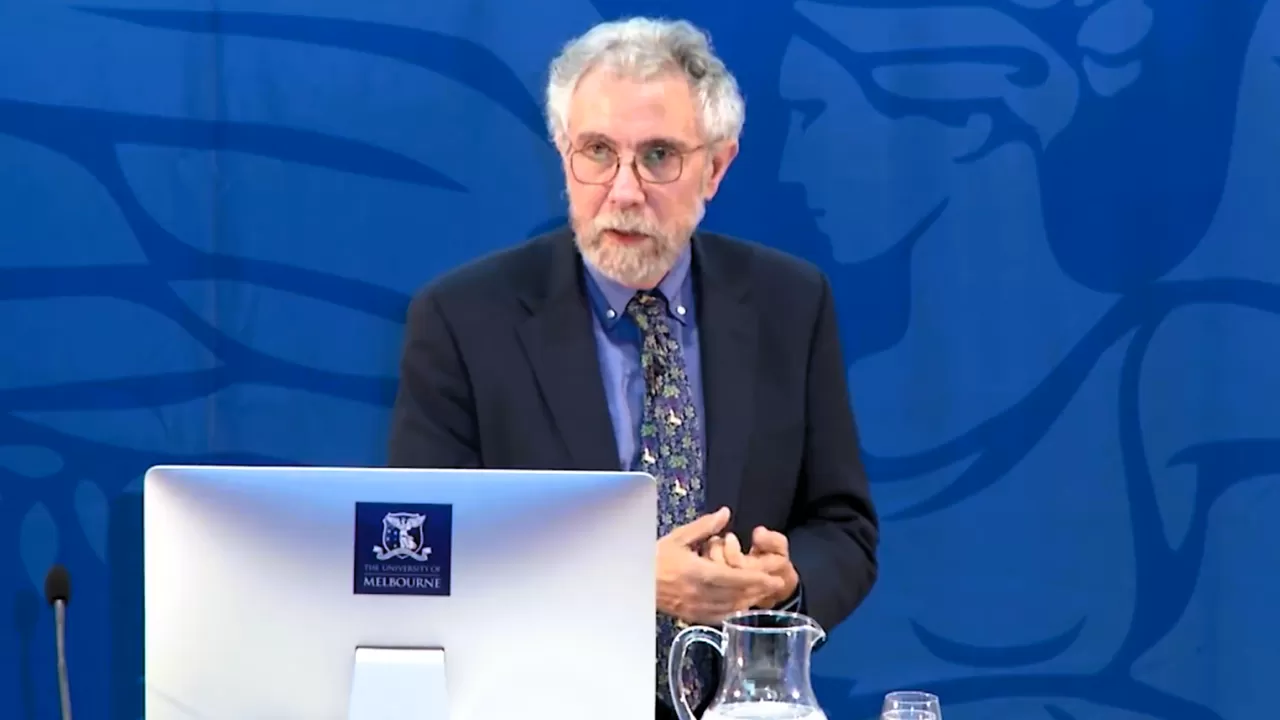#6 Paul Krugman

Paul Krugman, Distinguished Professor of Economics at City University of New York’s Graduate Center, and previously a professor of economics at the Massachusetts Institute of Technology and, later, at Princeton University, was awarded the Nobel Prize in Economic Sciences in 2008. On February 12, 2019, he delivered the annual Corden Public Lecture at the University of Melbourne to a packed auditorium. Krugman’s topic was the globalization of trade relations and the impacts on individual living conditions, the labor market, and national economic standards. Globalization, which, from the 1970s onward, appeared to be the most promising road to economic growth, has for some time been viewed critically on both the political left and right. The far-reaching changes to the world economy did not simply lead to growing prosperity and fairer income distribution, but also created social tensions and divides.
Krugman starts by sketching the historical development of the world economy since the 19th century. Spearheaded initially by British industrialization, globalization was then driven by American expansion in the 1930s and finally, from the 1970s onward, by pan-national development. A global market structure was only able to emerge when the developing countries, as they were called at the time, became production locations, and also started importing goods as a result of increasing private consumption. Global trade, as Krugman shows, promotes a rise in income levels, creates more jobs worldwide, and is therefore a success model when viewed from a global economic perspective. When the global market grew in the 1980s, the main advantages were seen to be lower tariffs and less bureaucracy, alongside falling production costs. However, in the medium term, as Krugman explains, this development brought about a weakening of Western labor markets and high risks for workers with low qualifications.
The disruptions to national markets resulting from the rapid growth in global trade have prompted some countries to adopt protectionist policies, including protective tariffs. Krugman provides further evidence for this trend in the changing opinions of Republican voters in the United States, who were firm supporters of globalization in the Reagan era but have now changed their opinion. With his findings, Krugman also sheds light on the secret of Donald Trump’s success. Trump was halfway through his first term in office when Krugman delivered his lecture in Melbourne. The mixed experiences of globalization and its impacts on national markets are leading to political countertrends, particularly in the populist context, as the 2024 US presidential elections demonstrate. In his analyses, the market and finance expert moves away from the heart of classic economics and enters the realm of the current political economy. Following him on this journey is extremely rewarding.
Peter-André Alt
Date April 16, 2019 (lecture held on February 12, 2019)
Language English
Length 75 mins (lecture starts at 09:00)
Title, series What did we miss about globalisation? Corden Public Lecture Series
Video The University of Melbourne